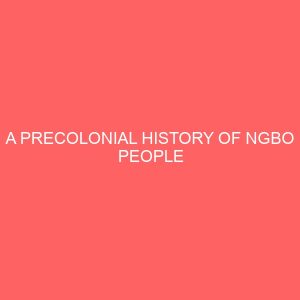Description
Abstract
This research work is on the Evolution and development of electoral agencies in Nigeria: a case study of INEC in Kano state, 1998-2015. This project places more emphasis on Independent National Electoral Commissions (INEC) which was established in 1998 by the then Nigeria’s Head of State General Abdulsalami Abubakar who also happened to be the last military leader who handed over power to democratically elected government in 1999.1 However, the evolution of electoral system in Nigeria dates back to colonial era. Elective Democracy was introduced in the country in March 1920 with the Township Ordinance that provided three elected members of the Lagos Town Council. The Nigerian Legislative council was established in September 1923 with four elected Nigerian members, three from Lagos and one from Calabar.2 Due to series constitutional reforms in 1922, 1946, 1956 and 1959. The elective principle was gradually established across all part of Nigeria. In 1959, the first election management body in Nigeria was established, the Electoral Commission of Nigeria ECN. The ECN managed the Independence Elections of November 1959, but was subsequently replaced by the Federal Electoral Commission FEC in 1960. The FEC managed the Federal and Regional Election of 1964 and 1965.3 The Federal Electoral Commission was dissolved as a result of first Nigerian military coup of 1966 and it was not until 1976 when military planning to hand over power to civilian administration.








Reviews
There are no reviews yet.